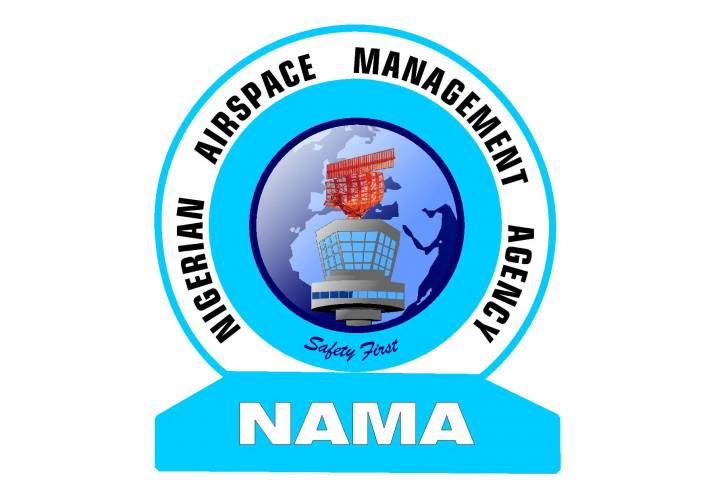The Nigerian Airspace Management Agency (NAMA) has announced a major breakthrough in its modernization drive, confirming the extension of its advanced satellite navigation system to 26 airports across the country. This move is expected to transform the nation’s airspace operations by improving safety, reducing flight delays, and enhancing efficiency for both domestic and international carriers operating in Nigeria.
The new satellite-based navigation system, built on the Performance Based Navigation (PBN) framework, represents a key step toward aligning Nigeria’s aviation infrastructure with international standards set by the International Civil Aviation Organization (ICAO). With the system now operational in 26 airports, pilots can navigate with greater precision, significantly reducing dependency on conventional ground-based navigation aids, which are often prone to outages and maintenance challenges.

According to NAMA, the deployment is part of its broader airspace modernization agenda aimed at making Nigeria a regional hub for aviation excellence. By integrating advanced satellite systems, the agency is not only expanding the operational capacity of airports but also ensuring that flight operations can be conducted more efficiently in all weather conditions. This development is especially critical for Nigeria, where sudden weather changes have historically caused frequent flight disruptions, diversions, and cancellations.
Industry stakeholders have hailed the initiative as a major win for the aviation sector. Airline operators, who often grapple with high operational costs linked to fuel consumption and delays, are expected to benefit from more direct flight paths and optimized air traffic management. The satellite system allows for continuous communication and surveillance, enabling air traffic controllers to monitor aircraft positions in real time with improved accuracy. This translates into better traffic flow, lower congestion, and increased safety margins.
In a statement, NAMA’s management emphasized that the deployment across 26 airports would drastically improve Nigeria’s compliance with ICAO’s global aviation safety plan. They noted that the system provides enhanced situational awareness for pilots, minimizes the risks associated with blind spots, and ensures that Nigeria remains competitive in the global aviation community.
The benefits of the satellite navigation extension are already visible in major airports such as Lagos, Abuja, Port Harcourt, Kano, and Enugu, where pilots have reported smoother landings, reduced holding times, and quicker turnaround periods. Smaller airports across the country have also gained from the technology, as it allows for safer operations even in remote locations where traditional navigation aids were either unavailable or unreliable.
Airline operators have expressed optimism that the system will translate into reduced costs. By providing shorter and more precise routes, airlines can cut down fuel consumption, which constitutes one of the largest components of their operating expenses. This is especially relevant in Nigeria, where volatile fuel prices and forex challenges often impact the profitability of airlines. Industry experts predict that with the technology in place, airlines could save millions annually, while passengers will benefit from improved on-time performance.
The modernization drive also carries significant implications for Nigeria’s economy. A more reliable and efficient aviation sector can serve as a catalyst for trade, tourism, and investment. By reducing delays and improving connectivity, the satellite navigation system supports the federal government’s broader agenda of positioning Nigeria as a strategic hub in West Africa. Enhanced airspace safety and reliability also improve Nigeria’s reputation with international carriers, encouraging more airlines to operate into the country.
NAMA has further assured that the system is future-proof, with room for upgrades as global standards evolve. Training programs have already been rolled out for air traffic controllers, engineers, and pilots to ensure they are well-equipped to maximize the benefits of the new technology. The agency stressed that capacity building remains a central focus, as the human element is crucial to sustaining the gains of modernization.
However, challenges remain. Aviation experts have noted that while the extension of satellite navigation is commendable, complementary investments in airport infrastructure, runway lighting, radar coverage, and weather forecasting systems are still necessary. Without a holistic approach, the benefits of the new system could be undermined by gaps in other areas of aviation infrastructure. NAMA has responded by stating that plans are underway to upgrade supporting systems in phases, ensuring seamless integration across the board.
The extension to 26 airports comes at a time when the global aviation sector is pushing for greener and more efficient operations. The satellite navigation system supports this objective by enabling airlines to fly more direct routes, cutting down on carbon emissions. This aligns with Nigeria’s commitment to sustainability and climate action within the framework of global aviation standards.
Passengers are also expected to feel the positive impact in the long term. With better predictability of flight schedules and fewer delays, confidence in Nigeria’s aviation sector could improve significantly. Business travelers, who often bear the brunt of disruptions, will likely benefit the most from increased reliability.
In many ways, this milestone underscores Nigeria’s determination to leapfrog into modern aviation standards despite years of underinvestment in the sector. With NAMA’s new satellite system covering 26 airports, the nation has taken a major step forward in delivering safer, faster, and more efficient air travel. For an industry that has long been burdened by inefficiencies, the development represents a new dawn.
As Nigeria continues to pursue its vision of becoming a regional aviation hub, the success of this project will serve as a foundation for more ambitious upgrades in the years to come. For now, NAMA’s bold investment in advanced satellite navigation has redefined air travel in Nigeria and has the potential to serve as a model for other African countries aiming to modernize their aviation infrastructure.
Support InfoStride News' Credible Journalism: Only credible journalism can guarantee a fair, accountable and transparent society, including democracy and government. It involves a lot of efforts and money. We need your support. Click here to Donate
